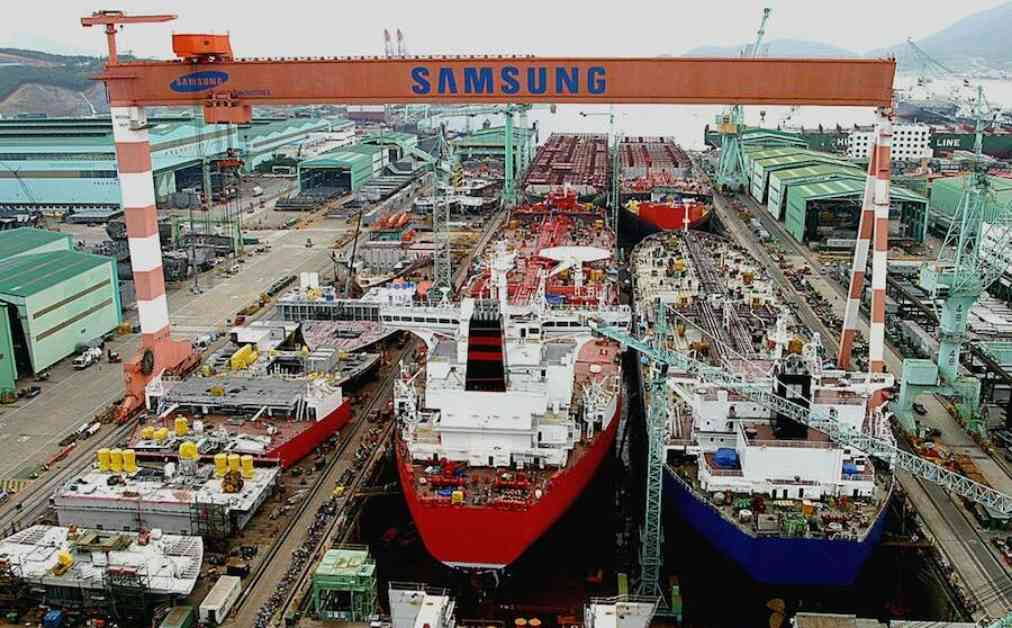Samsung Heavy Industries, a South Korean company, is taking legal action against a Russian shipyard owner for cancelling contracts worth $4.3 billion. The company announced its decision to sue Zvezda, a Russian shipbuilder facing US sanctions, for unilaterally cancelling two contracts for the supply of oil and gas tankers.
On Tuesday, Zvezda informed Samsung Heavy about the cancellation of contracts for the supply of blocks and equipment, including 10 icebreaking LNG carriers and seven icebreaking shuttle tankers. As a result, the Russian shipyard owner demanded the return of $800 million in downpayments received from Samsung Heavy, as well as payment of interest for arrears.
Samsung Heavy Industries’ decision to file a case at the Singapore International Arbitration Centre comes amidst a growing dispute between the two companies over the cancelled tanker orders. The legal battle highlights the challenges faced by international shipbuilders in the current geopolitical climate, where sanctions and trade disputes can impact business relationships.
The case also sheds light on the importance of contract enforcement and dispute resolution mechanisms in the maritime industry. As companies navigate complex contractual agreements and international regulations, having clear procedures for resolving disputes is essential to maintaining trust and credibility in the industry.
In addition to the legal implications of the cancelled contracts, the case between Samsung Heavy Industries and Zvezda underscores the broader economic and political tensions between South Korea and Russia. As companies from both countries seek to expand their presence in the global market, issues like sanctions and trade disputes can create barriers to growth and investment.
Overall, the lawsuit filed by Samsung Heavy Industries against Zvezda reflects the complex dynamics at play in the maritime industry, where commercial interests intersect with geopolitical realities. By seeking arbitration to resolve their differences, the two companies are taking a step towards finding a resolution that protects their respective interests and upholds the principles of fairness and transparency in business dealings.


















